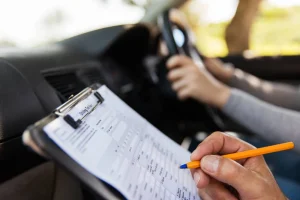Can I get my license in Canada as a foreigner? Securing a driver’s license in Canada as a foreigner is not only possible—it’s a well-established process tailored to the country’s growing immigrant population.
Whether you’re moving to Canada for work, study, or permanent residency, having a valid driver’s license can significantly increase your mobility, job prospects, and quality of life.
While each province and territory operates its licensing system, the overall structure is welcoming to newcomers who want to convert or obtain a new license.
Canada is known for its well-organized infrastructure, and road travel plays a significant role in everyday life. From bustling metropolitan areas like Toronto and Vancouver to more rural regions in the Prairies, having access to personal transportation is essential.
That’s why understanding how to obtain a Canadian driver’s license as a foreign national is critical for anyone planning a long-term stay. The process may vary depending on your country of origin, current visa status, and the province you reside in, but the opportunity is very much within reach.
Can I Get My License in Canada as a Foreigner?
The answer to the above question is yes. Below are ways you can get a license in Canada as a foreigner:
1. Foreign License Exchange Programs
One of the most straightforward paths to a Canadian driver’s license is through license exchange agreements. Canada has reciprocal licensing arrangements with several countries, including the United States, the United Kingdom, Australia, France, Germany, Japan, and South Korea, among others.
If you hold a valid driver’s license from one of these countries, you may be eligible to exchange it for a Canadian one without undergoing a knowledge or road test.
Each province has its criteria for eligible countries and license types. For example, Ontario allows license exchanges for full (non-probationary) licenses held for more than two years.
In British Columbia, applicants may still be required to complete a vision screening. It’s essential to verify the latest requirements with the province’s licensing authority, such as the Ontario Ministry of Transportation or ICBC in British Columbia.
2. Graduated Licensing for Newcomers
If you’re not from a country with a reciprocal agreement, you’ll likely need to go through Canada’s graduated licensing system. This system typically includes two stages: a written knowledge test and a road test. In Ontario, these stages are known as G1 (learner’s permit) and G2 (intermediate license), culminating in the full G license.
Other provinces follow a similar structure, though the names and procedures might differ slightly.
Applicants must usually provide documentation, including proof of identity, immigration status, and residence in the province. Many newcomers may be able to shorten the process by providing official documentation of driving experience from their home country—such as a driving extract or a notarized letter from the licensing authority.
Required Documents and Eligibility
To apply for a Canadian driver’s license as a foreigner, you generally need to provide the following documents:
-
Valid foreign driver’s license (with official translation if not in English or French)
-
Passport and visa or work/study permit
-
Proof of residency in the province or territory
-
Driving experience documentation (if applicable)
-
Completed application forms and applicable fees
Each province might have specific requirements. Quebec, for example, requires an appointment for most licensing services and may demand more extensive proof of legal stay. Some provinces may also mandate a vision test or require applicants to undergo a basic medical checkup if they are above a certain age.
Driving Schools and Training Options
New drivers and those not eligible for a license exchange can benefit from enrolling in a government-approved driving school. Many provinces offer insurance discounts to those who complete certified training.
These courses include classroom instruction, in-vehicle lessons, and mock driving exams to better prepare applicants for the road test.
Driving schools are especially useful for those unfamiliar with Canadian road signs, traffic laws, and winter driving conditions. Investing in professional training not only improves your chances of passing the exam but also enhances your safety and confidence on the road.
READ ALSO:
- What are Canadian Driving Rules?
- Way to Get an International Driver’s License in Canada
- What is the Legal Limit to Drive in Canada?
- What is the Driving Speed Limit in Canada?
- What is the Maximum Driving Hours in Canada?
Licensing Costs and Processing Time
Costs for obtaining a driver’s license in Canada vary by province and the path you take. The overall process can range from under CAD 100 for a direct license exchange to over CAD 1,000 if full training and multiple tests are required.
Processing time also differs—license exchanges may be completed within a few weeks, whereas going through the graduated licensing system can take months or more.
Here’s a helpful breakdown of visa types, processing timelines, and common sectors employing foreign drivers:
| Visa Type | Driving Eligibility | License Requirement | Common Employer Sectors | Average Processing Time |
|---|---|---|---|---|
| Work Permit | Yes | May need full road test | Transportation, Construction | 2–6 weeks |
| Study Permit | Yes | May need knowledge + road test | Delivery, Rideshare, Hospitality | 3–6 weeks |
| Permanent Resident | Yes | License exchange or full process | Public Sector, Healthcare | 1–4 weeks |
| Visitor Visa | No (short stays only) | Can drive with IDP | N/A | N/A |
| Express Entry | Yes | Often fast-tracked with documents | Tech, Engineering, Skilled Trades | 2–4 weeks |
| Refugee/Asylum | Varies by status | Usually full process required | Community Services, NGOs | 4–8 weeks |
Staying Insured and Legal
Once you obtain your license, it’s crucial to stay compliant with local driving laws. This includes registering your vehicle, purchasing auto insurance, and renewing your license when required.
Driving without insurance or an expired license can result in heavy penalties, suspension, or even deportation in serious cases.
Auto insurance in Canada is mandatory and varies significantly depending on your province, age, driving history, and vehicle type.
New drivers or those with limited experience may face higher premiums initially, but discounts are available for safe driving and completion of certified driving courses.
Canada’s licensing system is designed to be both thorough and inclusive. With clearly outlined pathways for foreign nationals—whether through license exchange programs, training courses, or full testing—foreigners have every opportunity to earn their license and integrate more fully into Canadian society.
From increased job opportunities to enhanced independence, holding a Canadian driver’s license opens many doors. The process may seem complex at first, but with the right information and a little persistence, you can confidently navigate the journey.
Whether you’re here to build a career, study, or start a new life, getting your license in Canada is a smart and empowering step forward.




